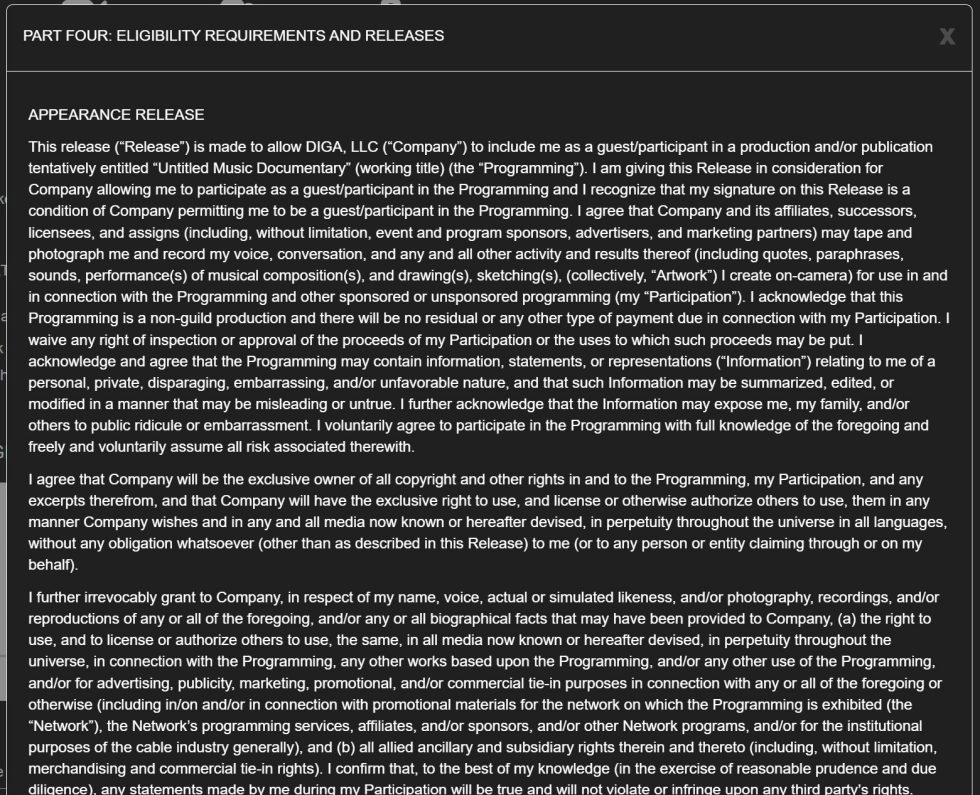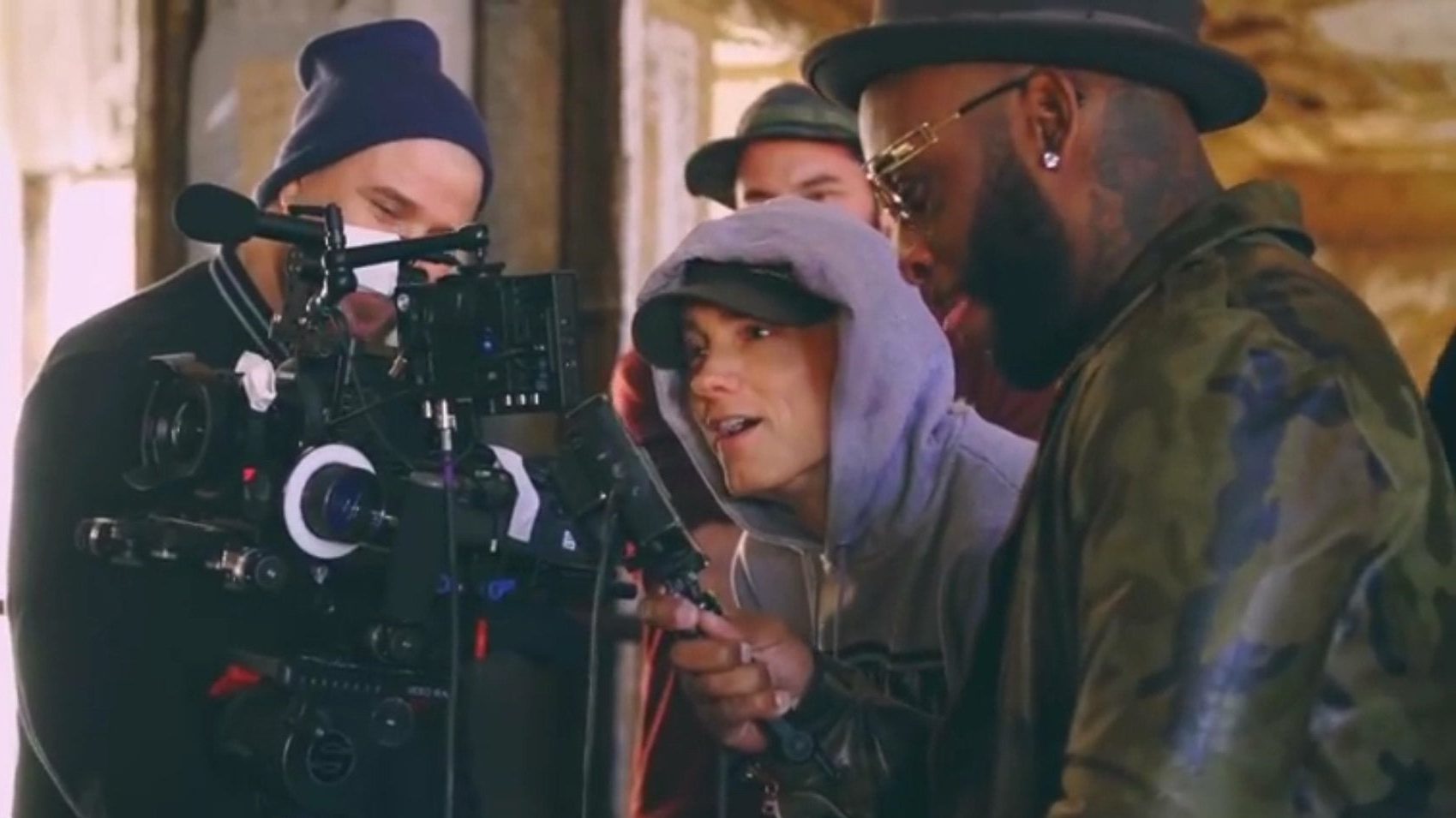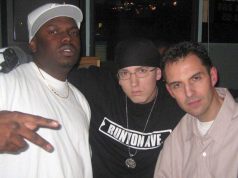Yesterday, Marshall released a call for his fans to share their stories to help with the creation of a documentary about “Stans”.
Those who followed the link to make their contribution to the project saw a list of sometimes very personal questions that encouraged participants to share some very personal memories. For instance, “What’s your favourite Eminem song? Which song first hit you on a deep personal level? Why?” or “Has Eminem or his music helped you through any difficult times?” or “What are some things in your life that you’ve accomplished thanks to Eminem/his music?”
After such a deep dive into the personal connection with Marshall’s music, participants, who also submit their social media handles and photos and record a video, might just check the box, showing that they agree with legal terms and conditions. However, there is something you need to see.
Among the usual dizzying wall of legal text (which you are still supposed to read every time, by the way), one paragraph stands out:
“I waive any right of inspection or approval of the proceeds of my Participation or the uses to which such proceeds may be put. I acknowledge and agree that the Programming may contain information, statements, or representations (“Information”) relating to me of a personal, private, disparaging, embarrassing, and/or unfavorable nature, and that such Information may be summarized, edited, or modified in a manner that may be misleading or untrue. I further acknowledge that the Information may expose me, my family, and/or others to public ridicule or embarrassment. I voluntarily agree to participate in the Programming with full knowledge of the foregoing and freely and voluntarily assume all risk associated therewith”.

This disclaimer is quite unusual. While some appearance releases might have disclaimers about potential negative portrayals, this one is very strong. It almost seems to encourage the possibility of being portrayed in a negative light.
Appearance releases typically grant permission for someone (like a TV show) to use one’s image and likeness in their production. This paragraph focuses on waiving the rights after the fact, not granting permission beforehand. However, sadly, this, as well as very broad terms used in the documents, has become widespread recently when companies collect information through the internet from multiple willing participants whom they intend to exclude from the following creating process. This one is not an exception.
Probably, when the synopsis was describing the project as “revealing, edgy, and disarmingly personal journey into the world of superfandom, told through the lens of one of the world’s most iconic and enduring artists, Eminem, and the fans that worship him” and talked about Em’s “his most extreme fans” we should have paid more attention. A story about freaks will sell better. However, there is still hope that the complexity of the Eminem fandom that, as we know, doesn’t consist of maniacs, will be represented fairly.
Do with this knowledge what you want. But know that your story might be interpreted in a way you did not expect, and you cannot do anything about it the minute you hit the “Apply” button.












